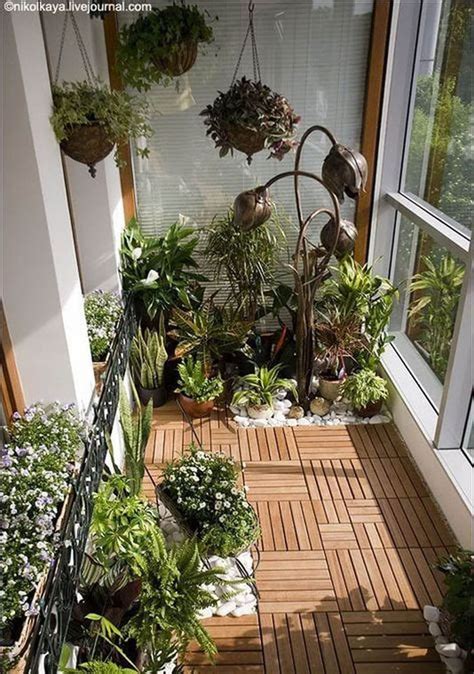Top Tips for Growing Flavorful Spices on Your Balcony
Growing your favorite spices at home on your balcony is a rewarding and practical way to enhance your meals with fresh, aromatic herbs. Balcony gardening is gaining popularity, and with the right approach, even small spaces can yield a variety of vibrant spices. This guide will walk you through the essential steps, from selecting the right spices to optimizing their growth and care, so you can enjoy homegrown flavors all year round.
Key Concepts of Balcony Spice Gardening
- Space Maximization: Using vertical gardening techniques and container gardening to utilize small spaces effectively.
- Climate Consideration: Understanding the microclimate of your balcony to select the best spices for your environment.
- Plant Care: Ensuring your spices get the right balance of sunlight, water, and nutrients for optimal growth.
Historical Context of Spice Cultivation
Spice cultivation has been an integral part of human civilization for thousands of years. From ancient Egypt to medieval Europe, spices like basil, thyme, and rosemary were not only valued for their flavors but also for their medicinal properties. Historically, spice cultivation was often relegated to larger, rural gardens, but modern urban gardening trends have made it possible for apartment dwellers to grow their own spices right on their balconies.
Current State Analysis: Spice Gardening on Balconies
In today’s urban environments, balcony gardening has evolved into a practical and eco-friendly solution for those who want to cultivate their own herbs and spices without access to traditional garden spaces. Innovations in container gardening, along with the availability of organic potting soils and compact plant varieties, have made it easier than ever to start a small spice garden in even the most limited of spaces.
Practical Applications of Balcony Spice Gardening
- Container Selection: Choose pots with good drainage and adequate space for root growth. Terracotta or ceramic pots are ideal for spices as they allow for breathability, helping prevent root rot.
- Watering Techniques: Balcony spice gardens require careful watering management. Herbs like rosemary prefer drier conditions, while mint thrives in moisture-rich soil. Consider a drip irrigation system to regulate watering.
- Sunlight and Placement: Most spices need at least 4-6 hours of direct sunlight per day. South-facing balconies are ideal, but you can also use grow lights if natural light is limited.
Case Studies: Success Stories from Balcony Spice Growers
| Spice | Climate | Balcony Type | Key Techniques |
|---|---|---|---|
| Basil | Warm, temperate | South-facing, full sun | Frequent watering, organic compost |
| Mint | Moderate, partial sun | Shady balcony, indirect light | Moist soil, controlled container to prevent spreading |
| Rosemary | Hot, dry | Exposed balcony, full sun | Drought-tolerant, infrequent watering |
Stakeholder Analysis: Who Benefits from Balcony Spice Gardening?
- Home Cooks: Fresh, organic spices are readily available for culinary use.
- Environmentally Conscious Gardeners: Growing spices reduces the carbon footprint by eliminating the need for transportation and packaging of store-bought herbs.
- Apartment Dwellers: Urban residents with no yard space can still enjoy the benefits of gardening.
Implementation Guidelines: How to Set Up Your Balcony Spice Garden
- Assess Your Space: Measure the available area and note how much sunlight your balcony receives daily. This will help you choose the right spice plants.
- Select Your Spices: Start with easy-to-grow varieties like basil, mint, and thyme. Ensure they are suited to your climate.
- Choose Containers Wisely: Opt for pots that allow for proper drainage. Herbs like oregano thrive in slightly dry conditions, while cilantro needs consistent moisture.
- Prepare Your Soil: Use a high-quality potting mix with added organic compost. This will provide essential nutrients and ensure good drainage.
- Regular Maintenance: Water your plants as needed, prune to encourage bushier growth, and watch out for pests like aphids. You can use neem oil as a natural insecticide.
Ethical Considerations in Urban Spice Cultivation
Balcony gardening encourages sustainability and reduces the environmental impact of commercial agriculture. However, it’s important to source seeds and plants responsibly, opting for organic and non-GMO varieties to support ethical farming practices. Additionally, gardeners should consider water conservation techniques to reduce wastage in urban settings.
Limitations and Future Research in Balcony Spice Gardening
While balcony spice gardening offers many benefits, there are some limitations. One challenge is the limited space for root growth in containers, which can stunt the development of larger herbs like bay leaves or lemongrass. Future research could focus on innovative container designs that provide more room for roots while still fitting within small balcony spaces. Additionally, experimenting with different spice varieties that can tolerate urban pollutants and fluctuating temperatures may lead to new opportunities for city gardeners.
Expert Commentary on Balcony Spice Gardening
Growing spices on your balcony offers a unique blend of practicality and pleasure. According to experts, the key to a successful spice garden lies in understanding the specific needs of each plant and providing the right environment for growth. As noted by urban gardening specialist Maria Fernandez, “The most important factors are proper sunlight, soil health, and regular care. Spices like thyme and rosemary thrive in sunny conditions with well-draining soil, while others like mint can handle partial shade and more moisture.” In conclusion, with the right techniques and a bit of patience, anyone can grow a thriving spice garden in a limited space, reaping the benefits of fresh, flavorful herbs year-round.


